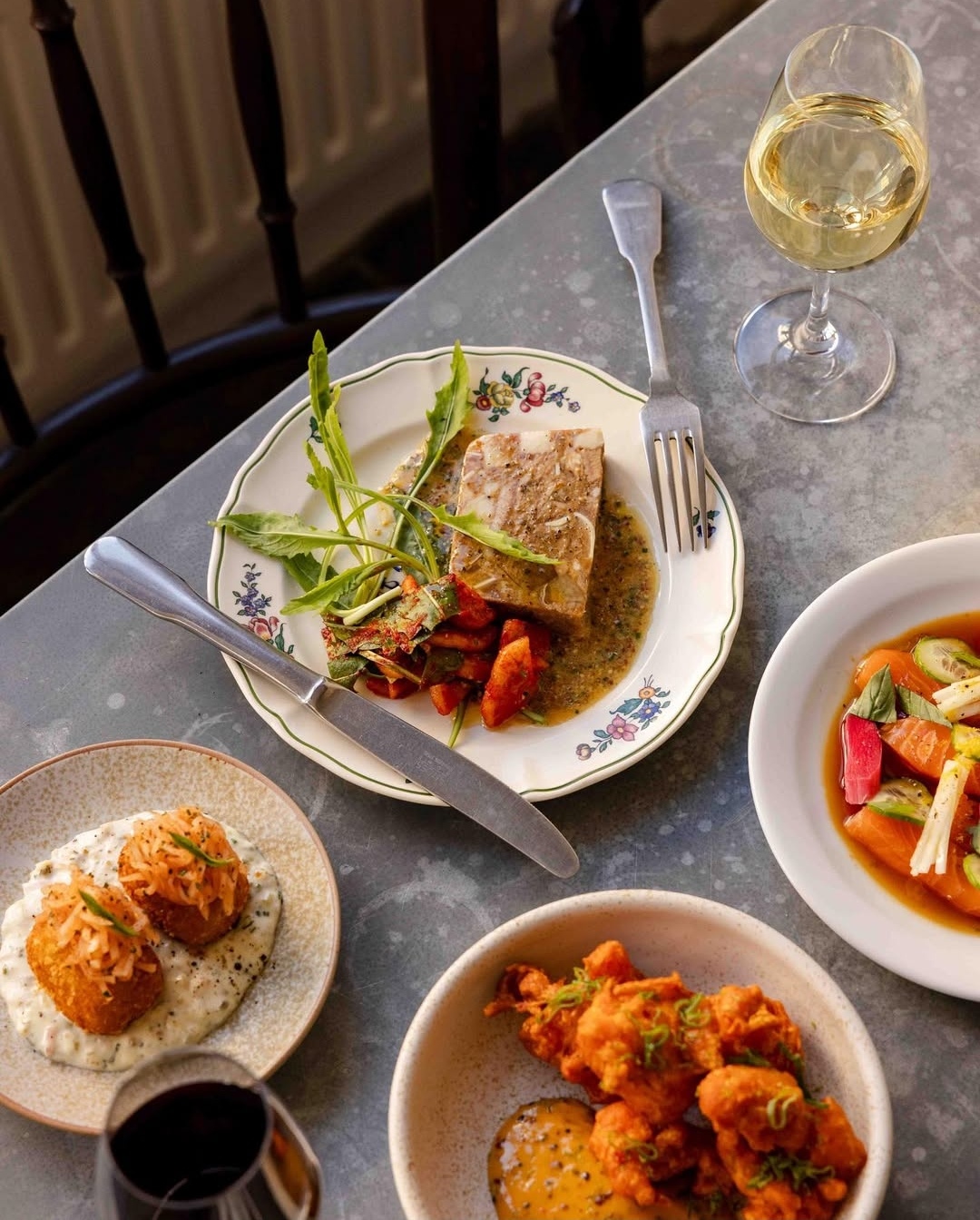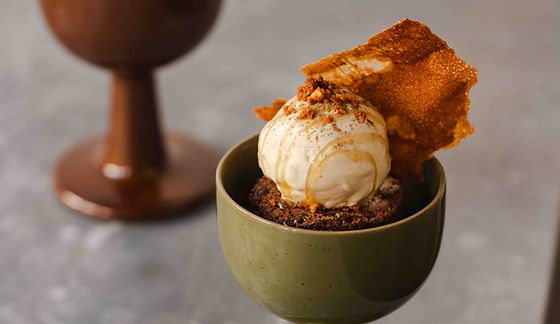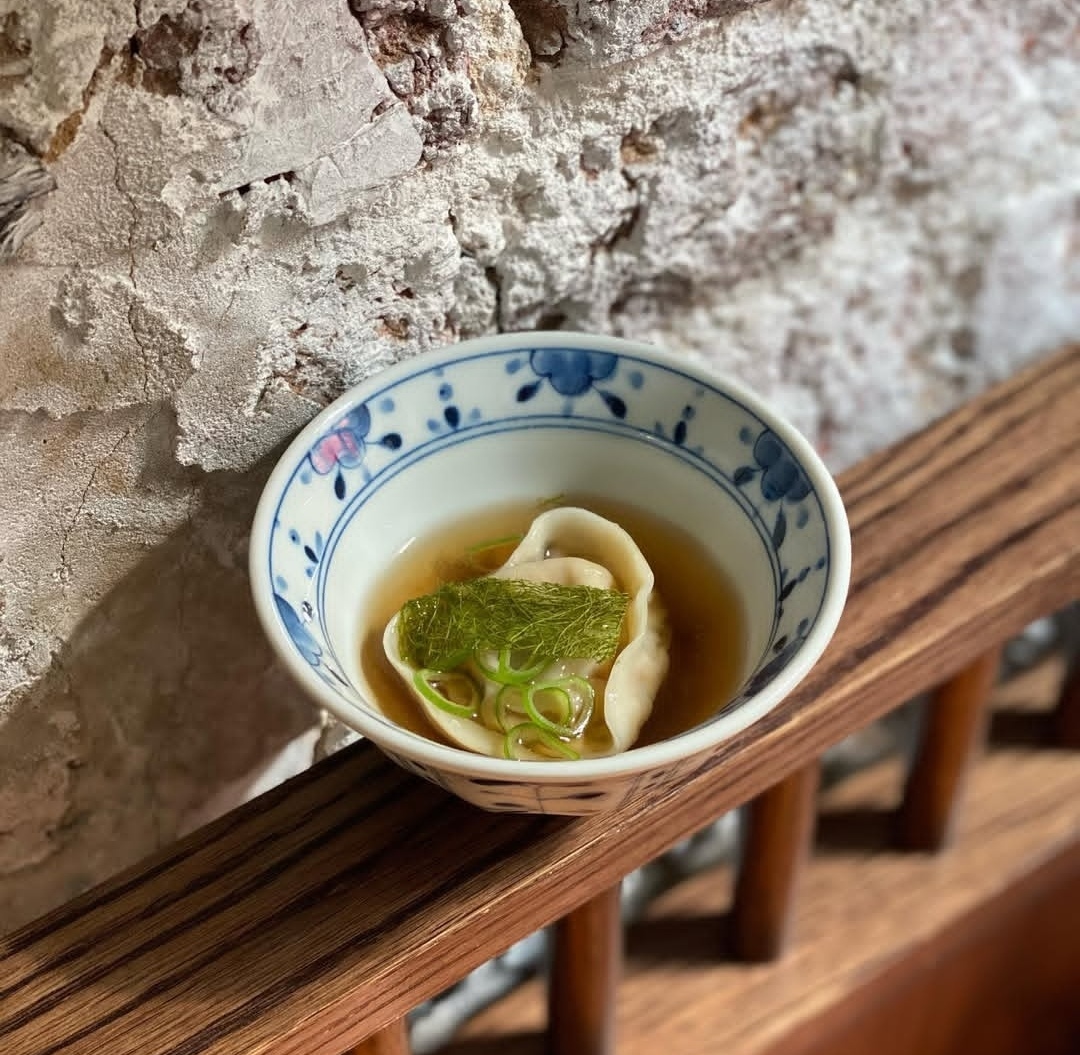With roots in the coastal city of Busan, Korea, Chef Joo has carved an impressive culinary path that now leads to London. Chef Joo established his own restaurant Cálong in London. At Cálong, Chef Joo blends his Korean heritage with his European fine dining experience, creating dishes that sophisticated. Joo Won shares his passion for Korean and European dishes. As Korean cuisine continues to gain global attention, Chef Joo's voice is more relevant than ever. It's a reflection of Korea's evolving identity worldwide and the importance of culinary storytelling in bridging cultures.
The following are excerpts from an email interview with him from May 22-28.
What inspired you to start cooking, and how did your Korean roots shape your culinary journey?
I was not particularly aware that I like cooking. The passion and interest had built in me slowly while I was having experience around pastry & baking institution in Korea, and different kitchens while I am studying in hospitality and tourism in London where I was continuously exposed to the food & beverage. Unlike other jobs and studies, I did in past, food related work was more pleasing and satisfying. And I could see myself progressing and becoming competitive personality as I put more time into the kitchen. Also, visual impact of the food, followed by taste of addictive savory sensation in my palate, the dining experience, one day, after a few years of spending time in the kitchen, I just realized that this is the greatest thing happened in my life. I was thinking and doing only cooking and had no interest at other things. Many years passed without looking at other things in life. Just like when you start relationship, you have one aim, being with that person. Cooking was that for me. Didn’t feel bored, tiredness, it was pure excitement, eye openings just to looking around restaurants, chefs and their dishes.
It was later stage of my cooking career that it is important to know more about Korean cooking that I need to keep my root where I am originally from, because it can help me to define my cooking as a chef.
Being Korean and knowing what the essence of Korean food is helping me a lot to keep me in the direction of what kind of cooking I would like to do. Some may agree and disagree, but regardless other's opinion, it is important that I have guide, which is nostalgia of Korean food from very young to middle 20’s and it surely built in my palate and memory as guide toward my cooking style.

You’ve mastered both Korean and European cuisines. What was the most challenging part of blending these two culinary worlds?
I can’t say that I mastered both cuisines, yes, I worked as a professional chef in European kitchen, mostly French, so that I am familiar with technic and use of its ingredients to bring the best of their character, but whole food scene is continuously evolving, and many great chefs are creating the way of bring out new skills and flavor. So, I am at the stage of still learning. Especially about Korean cuisine, there are so many things I need to learn, I am still very early stage of Korean cooking skill compared to other great Korean chefs around world.
Blending two cuisine is never easy, sometimes it works great, sometimes it gets lost its direction, and confuse diners. So, I am always trying to focus on ingredients that what flavor or technic would bring the best of its character, instead how can I mix both cooking together. Some ingredients work better with one cuisine: some works with the other. Or sometimes it meant to never be mixed. Being saying that knowing ingredients and how to use them is the most difficult part of my cooking in general.

Fusion cuisine often raises eyebrows. What drew you to create a blend of European techniques with Korean flavors?
Yes, it does confuse diners and sometime could feel lacking in authenticity.
So, I create the dishes based on flavor profiles and characteristic of the dishes.
For example, beef bourguignon – classic French, braised beef, rich red wine and beef stock. There is similar dish in Korean cooking which is galbi jjim -braised beef short rib flavored with garlic, soy and pear.
Both dishes have very similar character that slow cooked melting beef is served in stew style and it is heartwarming, and you could think that bourguignon would work well if soy and pear juice is used instead of red wine. Vice versa, some Koreans do add red wine when we cook galbi jjim.
It is not the always a case, but in many cases, it works out and bring out the satisfaction when it’s done rightly.
And I would like to say it is not a fusion, I think it is more of act that adding extra color and texture to its originals to bringing out the possibility of dish with different ingredients or change of flavor profile.
Do you think the fusion movement in Korean cuisine has had an influence on the way people around the world view Korean culture, and if so, how?
I agree there is influence that bringing people’s attention to our culture.
Like I mentioned above, when French diner tastes beef bourguignon which made style of galbi jjim. It will draw the attention and put the diner into interest of the Korean cooking. Then diner goes to other place, tasted beef tartar done similar way of Korean yuk hoe (raw beef served with egg yolk, pear and sesame oil), definitely thinks that there is a connection of cooking or at least similarity of resecting ingredients and its cooking. That will naturally lead diners to look at the Korean food culture in general hence toward the way of the life and culture in general. They might find something not in common at all, but at least Korean based flavor food initiates their interest of act of researching what is in Korea and its culture. Then the interest would link to the music, movie and finally planning travel to Korea.

Has there been a dish or culinary project that made you realize the power of food to bring people together across cultures?
Many does. Making Kimchi does. And just cooking simple food and eating together with friends does. It might be too common act and too simple answer, but we all have great experience that you had such good time with friends (and they bring their friends or partners), just making food, eating and drinking together. Regardless culture, nation and language, it is the act of sharing the moment and bringing everyone’s attention to one common thing at specific time- The food on the table. Eating food does its massive role in our daily life. It becomes a bit independent act now a days, but still there are many of us know how great being together at one table to share the food and raise the glass together.
What’s the next step in your culinary journey? Are there any exciting new projects or flavors you’re eager to explore?
I recently opened the restaurant at north London, I will probably focus on settling our food and wines service there, also try to learn myself more about cooking that how to link my personality into seasonality of British ingredients. It is the most challenging thing as a cook, and it will be never end. Ingredients surprise us every year when it is back. I thought I knew what they are, but sometimes it makes me feels that it is very new to me.
Like you walk the same road, you think it is same road every day, but you feel the different wind and air, in fact you will never have same air and wind again. It is not possible that nature will bring you the same thing every day every year. Thinking like this might be a bit to dramatic, but it gives you a curiosity, challenge, open to and creativity, it really excites you. It also does you an agony that you realizing that you can’t rest and stand still.
What’s your favorite kitchen tool or gadget, something that helps bring your ideas to life in the kitchen?
Sharp knife is the base of the base. Everyone knows but not many is actually maintaining. Respecting your basic tool is the most fundamental of any kinds of profession.
Chef Joo’s restaurant stands as a living narrative – bridging generations, geographies and perspectives through flavor.
How about this article?
- Like1
- Support0
- Amazing2
- Sad0
- Curious0
- Insightful0


